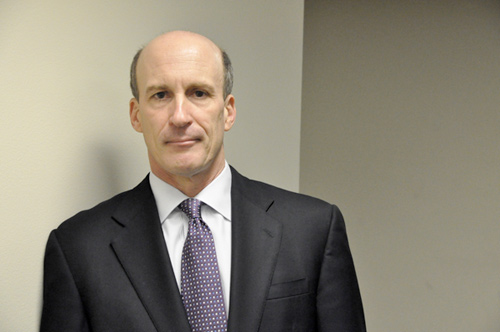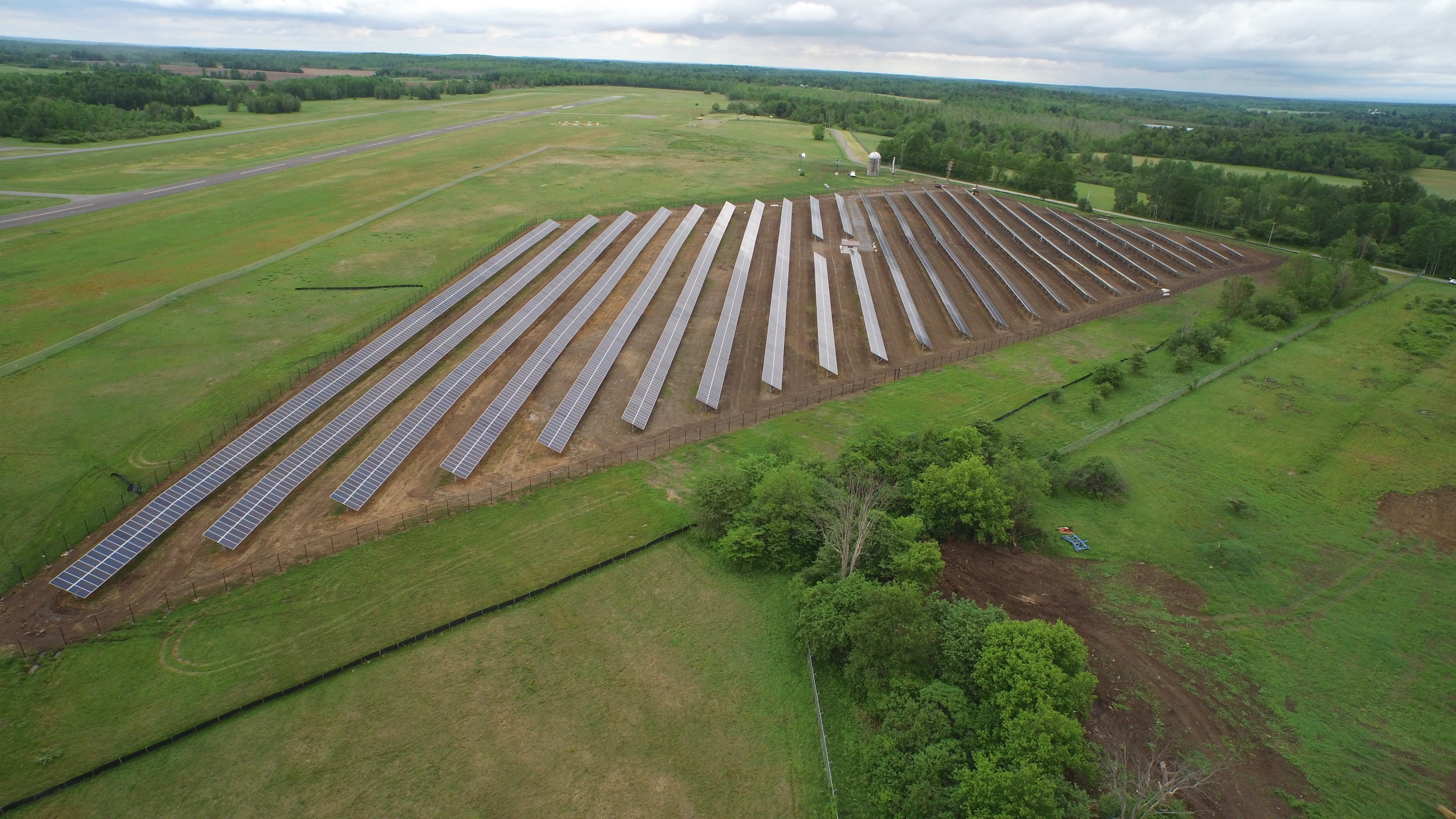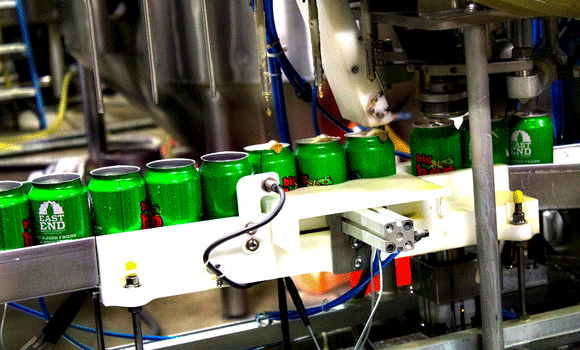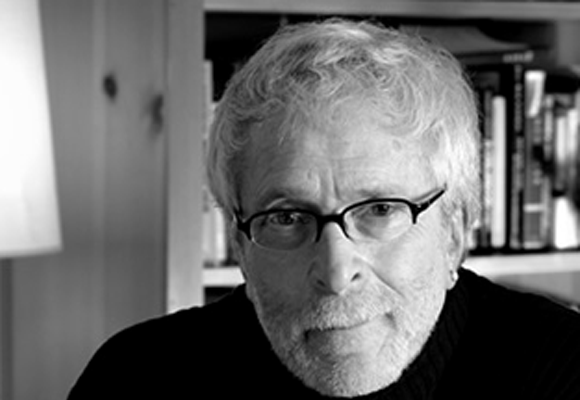 Native Pittsburgher Dennis Yablonsky has been head of the Allegheny Conference since March, 2009. Prior to that, he was Secretary of the PA Department of Community and Economic Development. He spent the first part of his career with two software companies, including the Carnegie Group in Pittsburgh.
Native Pittsburgher Dennis Yablonsky has been head of the Allegheny Conference since March, 2009. Prior to that, he was Secretary of the PA Department of Community and Economic Development. He spent the first part of his career with two software companies, including the Carnegie Group in Pittsburgh.
Tracy Certo (TC): How are things at the Allegheny Conference and what does the future hold?
Dennis Yablonsky (DY): Building the energy economy is the biggest new thing and it’s going well. It’s been a pretty good year. Macroeconomics is good, ahead of plan in terms of projects and pieces of legislation passed (Senate Bill 1429 to more easily merge municipalities).
TC: And the energy sector?
DY: The Marcellus shale is just booming with projects and jobs. Nuclear hub driven by Westinghouse is going very well and the supply chain aspects such as solar and wind.
TC: Are we really becoming known as a nation’s energy center?
DY: Moreso in the global profile which was enhanced significantly by the G20. And our recent visit to China.
TC: The Mayor and Pittsburgh got great press in your recent visit to Shanghai. What was the major takeaway?
DY: The global profile was raised substantially by going. We have five new project leads we didn’t have before in Korean and china and two projects already working on that are moving forward. The Korean delegation of businesses are coming in the spring. We did a lot of media interviews, met a lot of people, raised our profile.
TC: On the topic of jobs, where is the region’s strength when it comes to employment? Are Eds and Meds still leading the way?
DY: There are occupation clusters: healthcare is one; financial services, engineering and manufacturing jobs, IT jobs and a lot of energy jobs. Those are the big clusters. Not one company dominates. It’s still spread through the entry level, mid level and high level as well.
TC: A recent Kaufman study found that entrepreneurs are the only ones fueling job growth today. How do you think Pittsburgh is doing and what is the Conference doing to promote entrepreneurship?
DY: I’m a little biased. I think entrepreneurship is important. Small and medium companies are creating most of the jobs. I try not to duplicate anything else that’s going on. Innovation Works and the Life Sciences Greenhouse are partners, but we try not to duplicate them. We advocate for them. The energy initiative is being led by my team and Rich Lunak’s team. We’re handling the policy and advocacy and they’re handling the innovation research and federal funding.
In sectors where we’ve applied some effort, like IT and Life Sciences–if you look at those areas where we put emphasis–we’re doing better. As a region we need to make progress as an entrepreneurial place.There are some big companies hiring here: Westinghouse, UPMC, PNC BNY Mellon, Consol. And medium size shale companies like Range Resources. The myths about Oklahomans and Texans are really only roustabouts. The bulk of Range’s people are in offices, relocating.
There’s a $5 million grant on Marcellus Shale for new workforce training and certificate programs for roustabout positions, at Westmoreland County Community College and (Pennsylvania College of Technology) over a period of time–so we can let all those nice Texans go home. The drilling will continue for a long time. There were 1,700 new drill sites this (past) year, more this year–it’s at least a 5 to 10 year period of time for drilling. A lot of jobs are not on the drilling site.
TC: What does this represent for Pittsburgh? How permanent are the jobs?
DY: It’s permanent job retention for the community. First, it represents a potential game changer for us as a source of low cost, low emission feedstock to create electricity and second, it represents the potential to attract some industry for PA–like plastics that tend to go where the supply is–and then third, use of the alternative fuels in vehicles.
TC: While there is enormous economic potential in the Shale, there is also enormous concern over environmental implications. What is the conference doing to insure that drilling companies will protect our environment, including our water?
DY: We still have to get the public policy right in a way that’s economically and environmentally sensitive and I don’t think those two are incompatible.
The Marcellus Shale Coalition put out a recent document of principles. Companies understand that it’s very important to have high standards of safety and concern for water. I think they want to do the right thing. They’re trying to do the right thing.
TC: What about a Marcellus Shale tax?
DY: The coalition is supportive of a competitive tax. How much is under negotiation. They’re looking for a comprehensive set of environmental legislative changes.
TC: And a mitigation fund for disasters?
DY: The money would go into a general fund, local, rather than the money going into an environmental fund. Or the money goes into an innovation fund–for example to Innovation Works to spin off new companies and new technology in the energy field, or to fund development of infrastructure for natural gas vehicles, something the natural gas companies would be interested in.
TC: How?
DY: We advocate for certain tax changes that will be beneficial to energy. In 2009 the cap on the NOL net operating loss carry forward was lifted, for example. We’ll be advocating with a new governor with a number of things.
I’m a little biased. I think entrepreneurship is important as you indicated. Small and medium companies are creating most of the jobs. I try not to duplicate anything else that’s going on. Innovation Works and the Greenhouse–we partner with them but try not to duplicate them. We advocate for them. The energy initiative is being led by my team and Rich’s (Lunak) team. We’re handling the policy and advocacy and they’re handling the innovation research and federal funding.
In sectors where we’ve applied some effort, like IT and Life Sciences–if you look at those areas where we put emphasis, we’re doing better. As a region we need to make progress as an entrepreneurial place.
TC: How do we use one of our greatest assets, water, to our advantage?
DY: It’s huge. I don’t know yet. Too early to tell. The other part of the water business is what I would broadly call the supply chain—a lot of businesses and products that have the potential to grow more companies.
TC: In related thought, where are we on the new push for regionalism?
DY: West Virginia is actively involved, some of the economic development organizations such as the Energy Alliance are really active. The Tech Belt, predominantly set up to take better advantage of our congressional strength because we need to do a better job of going after federal research and development funds. And the Power of 32 is starting to break down these artificial boundaries.
Even our workforce–we’re looking at municipal pensions broadly and we’re actively engaged in the transportation’s state funding which significant and has a long term impact on roads and bridges. Transit is huge. The pensions, transportation funding, loss of general funding. I’m hearing people say it’s the $5 billion problem next year.
TC: What are you most curious about these days?
DY: Where political discourse is heading. It’s become very ugly. As a nation we need to be able to sit down and have disagreements without being disagreeable. How do we get through it and have differences without people thinking the other side is evil?
TC: If you had a magic wand, what would you do for Pittsburgh?
DY: Finish the downtown renovation. The core of a region–any region–is very important. If the core’s healthy it will emanate out. If we finished downtown, more people would live here, and the city’s revenue coffers would go up.
TC: Favorite restaurant?
DY: Sonoma Grill. And my favorite dish there is the crab and avocado salad.
TC: What public figure do you most admire?
DY: Roberto Clemente who was not only a great ballplayer but a great humanitarian who broken down barriers for players. And he did it right here in Pittsburgh.
Tracy Certo is managing editor of Pop City. Send feedback here.
Fore more of Pittsburgh’s latest and greatest, click here to receive Pop City in your inbox for free every week.



